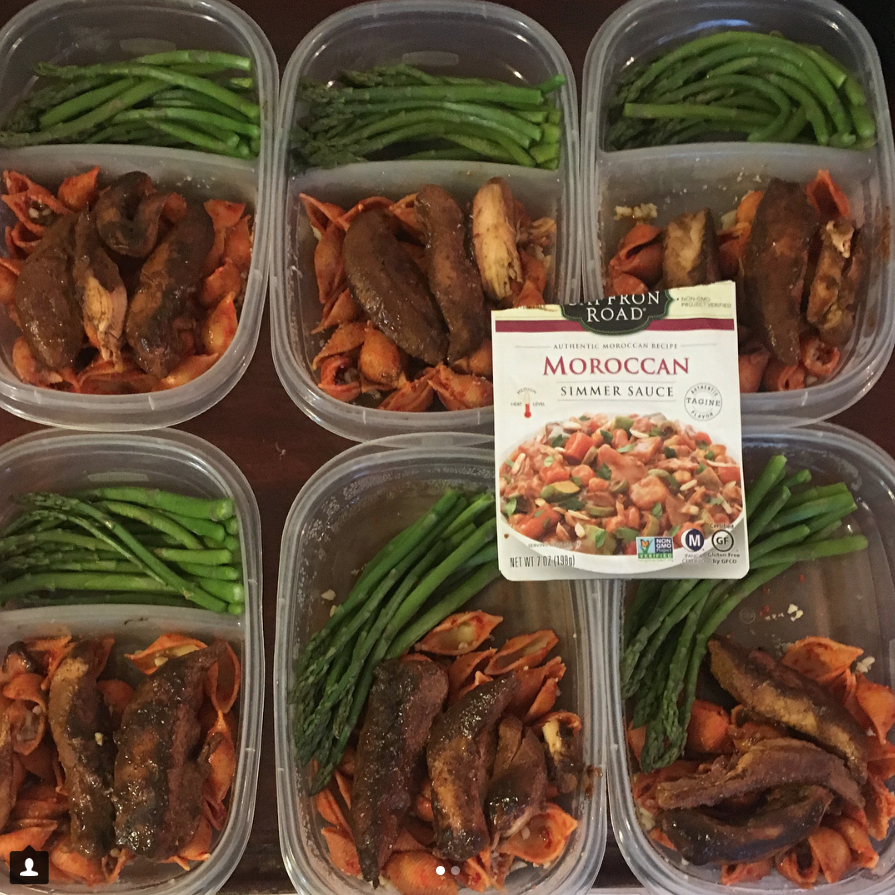Does the thought of making changes in your diet have you feeling intimidated? If so, you aren’t alone. Many people who want to make the change to healthier eating often wonder where in the world they should begin and how they’re going to stick to such a big change.
Fortunately, it doesn’t have to be as scary as you probably think it is. To help you start making smarter choices in the way you eat, we’re sharing nine simple ways to make beneficial long-term diet changes. Even though dieting is a lifestyle commitment, it certainly doesn’t have to be challenging!
1. Start With Small Changes First
Making changes in your diet can often be very overwhelming, especially if you’ve become accustomed to always eating a certain way. Thinking of all the changes you may want to make and foods you need to cut out can leave you feeling like you’re doomed for failure.
Instead of falling into that trap before you even get started, focus on making small changes as opposed to diving right in. It’s less intimidating when you start off slow and make gradual changes with healthier swaps. Plus, you’ll be setting yourself up for greater success this way.
For example, you can get started with healthy eating by making a few simple swaps each day. Instead of skipping breakfast or having a sugary cereal, have a bowl of oatmeal with a pinch of brown sugar instead. It’ll still be a sweat treat but keep you fuller longer and have the added benefit of giving you sustained energy. If you normally reach for a “junk” afternoon snack such as candy or something else pumped with refined sugars, try a sweet fruit such as a mango or berries. They’ll satisfy your sweet-tooth while providing your body with benefits junk food does not.
2. Don’t Cut Your Favorite Foods
When making long-term diet changes, your immediate thought is that you’re going to have to cut out all of your favorite foods. Fortunately though, this simply isn’t true. Sticking to a diet is a lot easier when you don’t restrict yourself too much. After all, there’s nothing wrong with indulging in a cheat meal every now and then. The key is to allow yourself those foods on occasion, but to make healthier choices a majority of the time and you’ll be just fine. I try to stick to the 80/20 rule — 80% of the time I eat as healthy as possible, 20% of the time I let myself indulge.
3. Keep a Food Journal
Whether you’re trying to lose weight or you just want to make smarter choices with what you eat, keeping a food journal can help. By recording what you eat, when you eat, and how you’re feeling before consuming a meal, you can learn a lot about your eating habits.
For instance, you may notice that you reach for snacks when you’re feeling bored or stressed out. That’s a sign that food isn’t necessarily what you need in the moment and that there’s something else (a deeper issue) you should address. If it’s stress that’s triggering you to eat something unhealthy, you can implement other stress relieving techniques to curb your cravings.
Recording the foods you eat on a daily basis will also show you where you can make healthier swaps in your diet. For example, if you notice that you’re often hitting the vending machine for a bag of potato chips at three o’clock, you can starting packing hummus and crackers to eat instead.
4. Plan Your Meals in Advance
One of the downfalls of dieting is that moment when you have no idea what to eat for dinner. However, you’re starving and you need to get something. With no food in the house and no idea what you could possibly cook, you resort to getting takeout or some other junk food that’s quick and easy, that’s probably not the healthiest for you to eat.
If that’s ever happened to you, there’s no need to worry because we’ve all been there. Although, if you really want to commit to a diet change, you need to get serious about it. Instead of allowing yourself to fall victim to those moments, you can take the time to plan your meals in advance. Start by sitting down every Sunday and planning out your breakfast, lunch, dinner, and any snacks you’re going to have. It may seem like a lot of work, but it’s worthwhile because it forced you to stick to a plan. Once you have your meals scheduled out, you can go to the grocery store, get everything you need.
5. Try a Meal Delivery Service
When you set out to make long-term diet changes, your first hurdle is often figuring out what you should be eating and what you should avoid. Fortunately, there are plenty of healthy meal delivery services that can help you out with this.
A personal favorite of mine is a smoothie delivery service called “Daily Harvest”. They deliver you a weekly box of already prepped smoothies. Just drop them in your blender for half a minute, and they’re ready to enjoy! The best part of meal delivery services like this is that they make your life easier and take all the guesswork of dieting out of the equation.
6. Focus on Portion Control
Unfortunately, we’ve become accustomed to eating larger portions in the United States because it’s what is typically served to us. By shrinking your portion sizes, you’ll consume less food and less calories. A caloric restriction is one of the best ways to lose weight (while also working out).
If you like to regularly eat out, one simple trick is to divide your plate in half. You can eat some of what you’re served and take the rest home to enjoy the next day.
7. Get an Accountability Partner
When it comes to dieting, sometimes it helps to have someone there to lend a little support. If you can, find a friend or family member to be your accountability partner throughout your journey. You two can build your own support system as you make those long-term diet changes within your lives.
You can check-in with each other each week to see how things are going, share healthy recipes, and even get together for dinner dates. When you’re encouraging one another, sticking to a diet is going to be so much easier. After all, you wouldn’t want to let your accountability partner down, would you?
If you don’t have someone in your life to hold you accountable, don’t panic! You can actually turn to online communities for support as well. One study showed that internet communities have played a vital role in weight loss progress.
8. Take Time to Savor Your Food
Let’s be honest, we all lead such busy lives these days. We’re often on the go and therefore we don’t take the time to truly enjoy and savor the food we have on our plates. Within minutes, we’ve managed to scarf down a meal without even realizing it.
However, if you want your diet to be successful, you need to take the time to just slow down. Instead of rushing to eat your meals, chew each bite thoughtfully. Enjoy the flavors of whatever it is you happen to be eating. And listen to your body! When you eat a meal too quickly, your body doesn’t have time to tell you that it’s full and you’ll wind up overeating.
By taking your time, you’ll notice the signals your body is giving you and you’ll know when to stop. In fact, it was discovered in a recent study that people who ate slowly consumed fewer calories, but were still satisfied after their meals.
9. Know That You Won’t be Perfect
Whenever you’re making any kind of big change in your life, it’s going to be difficult at first. For that reason, it’s so important that you don’t get discouraged or beat yourself up if you make a mistake. You’re not going to be perfect when striving to change your diet. There are going to be times when you slip up. And that’s okay.
The most important thing is that you get right back on track. Indulging in one unhealthy meal isn’t going to immediately undo any of the progress you’ve made. So, you just need to keep moving forward and strive to do the best you can each and every day.
Emily Brewster is a trainer at IronPlate Studios.


